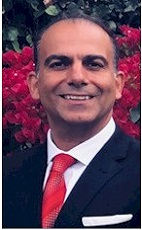
Hotel Sales and Marketing Directors manage a complex mix of strategies to attract and convert customers into guests. Part of their expertise includes an awareness of customer behavior during the reservation process, so they can make sure their hotel is favorably positioned. One such trend is the growing popularity of travel review sites. According to one recent survey, 61% of prospective customers consult online reviews in order to validate information about the hotel before making a purchasing decision. Another survey found that the average hotel customer reads between 6-12 reviews across 4-10 properties before making a final decision on where to stay. Similarly, other studies have shown that consumer reviews are a more trusted source of information for prospective customers than other kinds of marketing messaging. In fact, reviews are often considered to be as influential as price regarding whether a customer decides to complete a purchase or not. Plus, travel sites with the most reviews - including recent reviews from satisfied customers and thoughtful responses from staff - were also found to be the most appealing. So having positive reviews on a travel website is essential and can help to increase a hotel's conversion rates dramatically. Of course, there are all kinds of additional marketing strategies for sales and marketing directors to consider - the importance of video and the emergence of live streaming; the implementation of voice search; the proliferation of travel bots; and the development of Instagram as an e-commerce platform. The June Hotel Business Review will report on some of these issues and strategies, and examine how some sales and marketing professionals are integrating them into their operations.




 Hotel Sales and Marketing Directors manage a complex mix of strategies to attract and convert customers into guests. Part of their expertise includes an awareness of customer behavior during the reservation process, so they can make sure their hotel is favorably positioned. One such trend is the growing popularity of travel review sites. According to one recent survey, 61% of prospective customers consult online reviews in order to validate information about the hotel before making a purchasing decision. Another survey found that the average hotel customer reads between 6-12 reviews across 4-10 properties before making a final decision on where to stay. Similarly, other studies have shown that consumer reviews are a more trusted source of information for prospective customers than other kinds of marketing messaging. In fact, reviews are often considered to be as influential as price regarding whether a customer decides to complete a purchase or not. Plus, travel sites with the most reviews - including recent reviews from satisfied customers and thoughtful responses from staff - were also found to be the most appealing. So having positive reviews on a travel website is essential and can help to increase a hotel's conversion rates dramatically. Of course, there are all kinds of additional marketing strategies for sales and marketing directors to consider - the importance of video and the emergence of live streaming; the implementation of voice search; the proliferation of travel bots; and the development of Instagram as an e-commerce platform. The June Hotel Business Review will report on some of these issues and strategies, and examine how some sales and marketing professionals are integrating them into their operations.
Hotel Sales and Marketing Directors manage a complex mix of strategies to attract and convert customers into guests. Part of their expertise includes an awareness of customer behavior during the reservation process, so they can make sure their hotel is favorably positioned. One such trend is the growing popularity of travel review sites. According to one recent survey, 61% of prospective customers consult online reviews in order to validate information about the hotel before making a purchasing decision. Another survey found that the average hotel customer reads between 6-12 reviews across 4-10 properties before making a final decision on where to stay. Similarly, other studies have shown that consumer reviews are a more trusted source of information for prospective customers than other kinds of marketing messaging. In fact, reviews are often considered to be as influential as price regarding whether a customer decides to complete a purchase or not. Plus, travel sites with the most reviews - including recent reviews from satisfied customers and thoughtful responses from staff - were also found to be the most appealing. So having positive reviews on a travel website is essential and can help to increase a hotel's conversion rates dramatically. Of course, there are all kinds of additional marketing strategies for sales and marketing directors to consider - the importance of video and the emergence of live streaming; the implementation of voice search; the proliferation of travel bots; and the development of Instagram as an e-commerce platform. The June Hotel Business Review will report on some of these issues and strategies, and examine how some sales and marketing professionals are integrating them into their operations.















